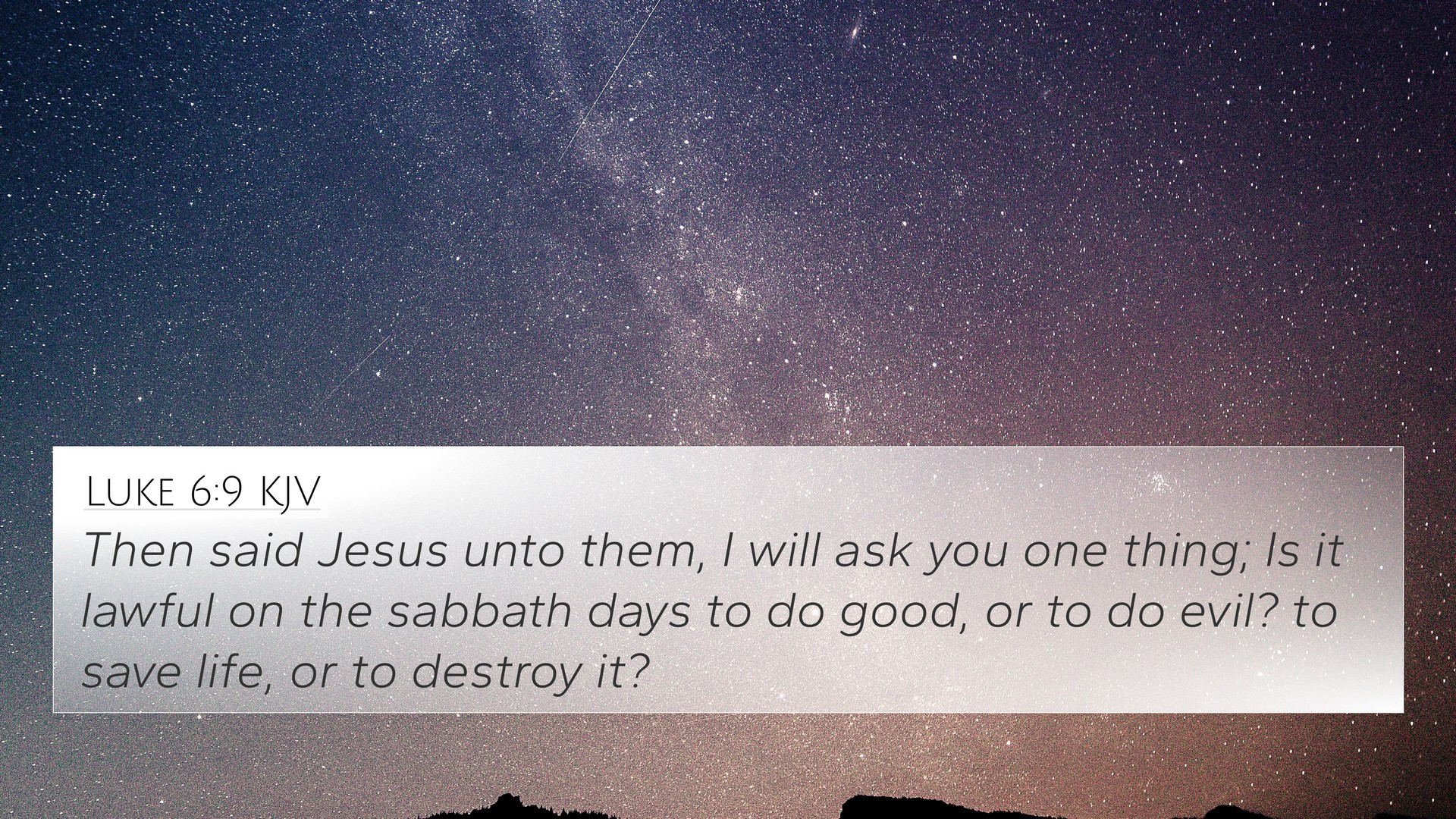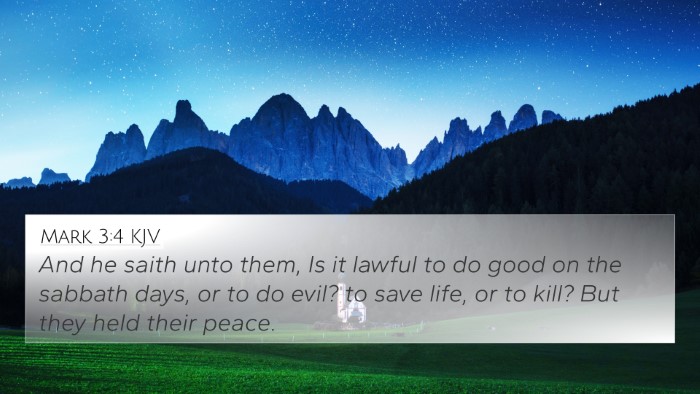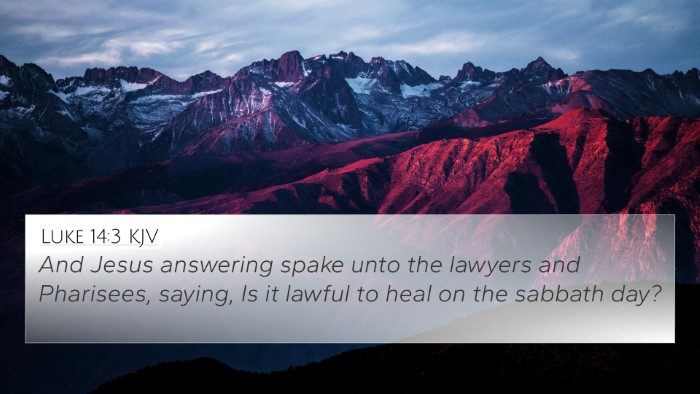Understanding Luke 6:9
Luke 6:9 states, "Then Jesus said to them, 'I ask you, is it lawful on the Sabbath to do good or to do harm, to save life or to destroy it?'"
This verse encapsulates a profound teaching by Jesus regarding the Sabbath and the nature of goodworks. The inquiry posed by Jesus challenges the prevailing interpretations of the law and the rigidity that often accompanied Sabbath observance.
Commentary Insights
-
Matthew Henry:
Matthew Henry emphasizes that this verse illustrates the compassion of Christ over ritualistic adherence to the law. He notes that Jesus is highlighting the spirit of the law, indicating that doing good is paramount, even on the Sabbath. Henry asserts that the act of healing or doing good is never unlawful, as mercy triumphs over judgment.
-
Albert Barnes:
Albert Barnes recognizes the contrast Jesus establishes between doing good and adhering to a hollow interpretation of the Sabbath law. He interprets this verse as a revelation of Jesus’ authority and an assertion that the purpose of the law is to promote life and well-being, not to impose restrictions that hinder compassion.
-
Adam Clarke:
Adam Clarke focuses on the implications of Jesus’ question, suggesting that it forces the hearers to confront their understanding of morality in relation to the law. Clarke argues that the question implies that acts of mercy are not merely permissible but are essential, and for this reason, Jesus seeks to reshape their understanding of righteousness.
Bible Verse Cross-References
- Exodus 20:8-10: The commandment regarding the Sabbath.
- Matthew 12:9-14: Jesus healing on the Sabbath.
- Mark 3:1-6: Another account Mirroring Luke 6:9 about healing on the Sabbath.
- Galatians 5:14: The law fulfilled through love.
- James 2:13: Mercy triumphs over judgment.
- Acts 10:28: God shows no partiality; extending the covenant to all.
- Matthew 5:17: Jesus not coming to abolish the law but to fulfill it.
Thematic Connections
Luke 6:9 serves as an anchor point for discussions on the essence of the law versus the spirit of mercy. Through this verse, several themes emerge:
- Law vs. Grace: This verse prompts examination of how the law should be interpreted in light of God's mercy.
- Compassionate Action: It signifies that acts of compassion are in alignment with God’s will.
- Human Need vs. Tradition: Jesus challenges traditions that conflict with human well-being.
- The Nature of True Worship: This verse compels believers to consider what authentic worship looks like in light of service and kindness.
Implications for Modern Believers
The teachings in Luke 6:9 encourage believers to prioritize compassion and action over rigid legalism. Modern Christians can draw from this insight to evaluate their own practices and the motivations behind their observance of traditions or commandments.
Tools for Bible Cross-Referencing
Engaging with verses like Luke 6:9 can greatly enhance understanding through tools for Bible cross-referencing:
- Bible concordance
- Bible cross-reference guide
- Cross-reference Bible study methods
FAQs About Cross-Referencing
- How do I find cross-references in the Bible? Utilize a Bible concordance or cross-reference guide.
- What verses are related to Luke 6:9? Look at the verses mentioned above for related themes.
- How do different Gospels compare regarding this healing on the Sabbath? A comparative study can yield profound insights into Jesus’ mission.
Conclusion
Luke 6:9 not only provides insight into Jesus' stance on the Sabbath but also encourages deeper exploration into the heart of the law and the necessity of mercy. By cross-referencing this verse with others in the Scriptures, believers can cultivate a broader and richer understanding of compassionate living as exemplified by Christ.







